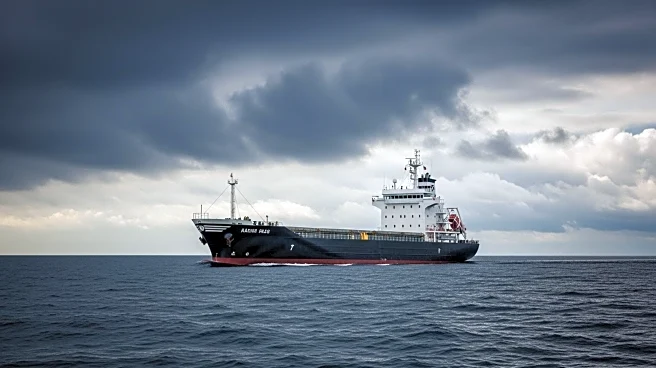What is the story about?
What's Happening?
A coalition of shipping companies has raised concerns over the International Maritime Organization's (IMO) proposed net zero regulations, which aim to impose levies on emissions from ships. The IMO, a global regulatory body for shipping, plans to adopt these rules next month, targeting net zero emissions by mid-century. The United States has criticized the framework, referring to it as a 'global carbon tax.' The shipping sector anticipates annual costs of $20 billion to $30 billion by 2030, potentially accumulating to over $300 billion by 2035 if targets are missed by 10%. Despite opposition from the U.S., the proposal has received majority support from countries in an IMO vote earlier this year.
Why It's Important?
The implementation of the IMO's net zero plan could significantly impact the shipping industry, which is crucial for global trade. The anticipated financial burden may lead to increased costs for consumers, as companies might pass on the expenses. The plan aims to reduce greenhouse gas emissions, aligning with global climate goals, but the financial implications could affect the industry's competitiveness and economic stability. The debate highlights the tension between environmental objectives and economic impacts, with stakeholders needing to balance sustainability with financial viability.
What's Next?
The IMO is set to formally adopt the net zero plan next month, with potential amendments to address concerns raised by shipping firms. The industry will need to prepare for the financial implications and explore strategies to meet emission targets. Stakeholders, including governments and industry leaders, may engage in further discussions to refine the framework and ensure it supports both environmental and economic goals. The outcome could influence future regulatory approaches to decarbonization in other sectors.















